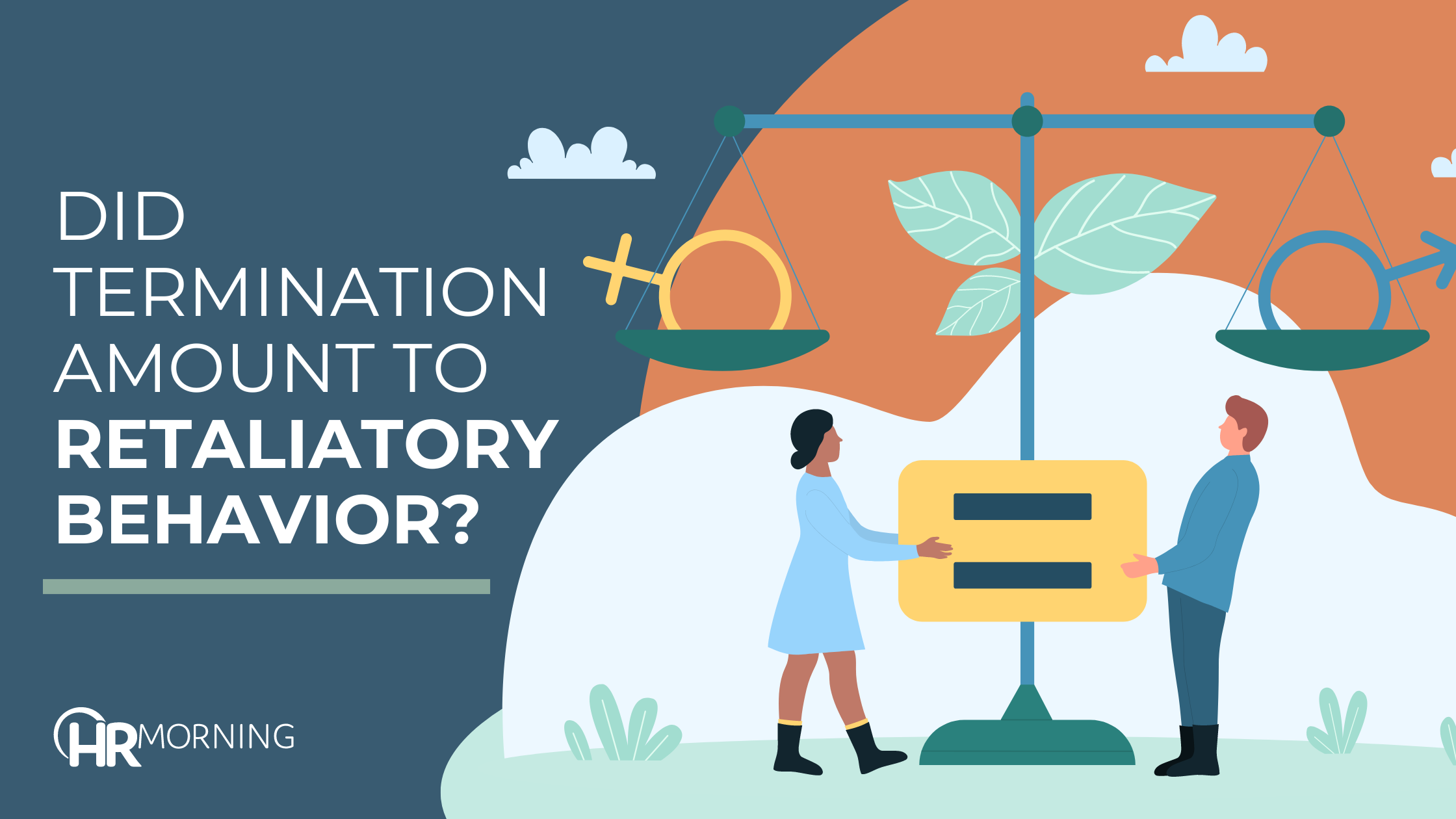What does retaliatory behavior at work look like?

At some point in your career as an HR pro, you’ve probably seen a manager who got bent out of shape about an employee’s accusation of discrimination.
A new case shows how important it is for HR to step in and be the voice of reason – before that frustrated manager reacts in a way that comes across as retaliatory behavior.
Training wanted
In 2022, Evelyn Gilmore was a 54-year-old Black woman who had worked at Dollar General in Mississippi for about 20 years.
Early that spring, Gilmore applied to participate in the company’s manager training program “for high potential warehouse supervisor Level 2 employees … interested in pursuing a manager role.” She was qualified for the program, according to the criteria listed by the company.
Along with Gilmore, seven other employees – all men – applied for the training program. Two were older than Gilmore, and four were younger.
Dollar General selected three applicants: two Black males in their early 30s and one white male who was approximately 56 years old.
In late April 2022, Gilmore filed a complaint with the EEOC, alleging the company’s decision not to select her for the manager training program amounted to discrimination.
Then, on July 1, Gilmore’s employment was terminated, purportedly because she “chose not to stay [at work] and continue looking for seventy-five missing boxes.”
Gilmore amended her EEOC complaint to add a retaliation claim. Then she sued in federal court, asserting claims of:
- age discrimination in violation of the ADEA
- sex and race discrimination in violation of Title VII, and
- retaliation in violation of the ADEA and Title VII.
The company filed a motion for summary judgment.
Why discrimination claims failed
To state prima facie discrimination claims under the ADEA and Title VII, Gilmore had to show – among other things – that she suffered “an adverse employment action.” She claimed the exclusion from the manager training program was an adverse employment action.
The court was not convinced that exclusion from the training program fit the bill for an adverse employment action under the ADEA and Title VII.
Importantly, the training program “did not affect salary, benefits or day-to-day conditions of work,” the court pointed out. “Nor did participation guarantee promotion.”
Plus, company records showed that unsuccessful applicants typically received help “preparing to participate in a later program cohort.”
Moreover, even if the exclusion had amounted to an adverse employment action, Gilmore failed to show any connection between the decision and her age, sex or race.
As a result, the court granted Dollar General’s motion for summary judgment on the discrimination claims.
Was this retaliatory behavior?
Turning to the retaliation claims, the court said Gilmore showed “a close temporal proximity – approximately two months – between filing an EEOC charge and the termination of her employment,” which was “more persuasive.”
The company argued that Gilmore was terminated because she refused to stay at work to help locate 75 missing boxes.
The court was skeptical. First, it noted that a reasonable jury could believe, based on Gilmore’s testimony, that she did everything she could to find the missing boxes before she left work.
In addition, it was undisputed that Gilmore was qualified for the training program, the court pointed out. That fact “suggest[ed] that Gilmore was a valuable and well-regarded employee,” the court opined.
Moreover, Gilmore’s employment record supported this view. She “had not been disciplined for over a year” and had “received her first verbal warning since 2020 only after she filed the EEOC complaint in the spring of 2022,” the court pointed out.
In the court’s view, genuine questions existed about the circumstances of Gilmore’s termination. As a result, the court denied the company’s motion for summary judgment.
The case continues.
Gilmore v. Dolgencorp, LLC, No. 40:22-cv-00154-MPM-DAS, 2024 U.S. Dist. LEXIS 24876 (N.D. Miss. 2/13/24).

